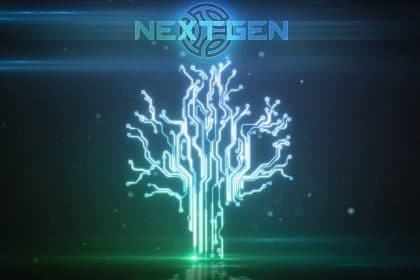There’s no doubt that the global climate is changing drastically and we are feeling its effects. In recent months, cryptocurrencies have come under fire for their carbon footprint, especially Bitcoin. The University of Cambridge even has an energy consumption index on Bitcoin. NextGen is a platform that intends to not only reduce blockchain carbon footprint but bring it down to zero.
The Crypto Climate Impact
The temperature in summers is at a record high and winters are shrinking. NASA estimates that by the year 2100, oceans can rise as much as 8 feet. Global efforts are underway to reduce the carbon footprint of industries and blockchain is no different. While the discussion on the climate impact is not new, this gained momentum when Elon Musk decided to stop the option to accept Bitcoin for Tesla’s vehicles, citing this very reason.
While the increasing pressure is forcing Bitcoin miners to seek renewable energy, NextGen believes that the solution is to move away completely and redesign the concept.
Xylonchain & Green Staker
Some crypto projects are considering this issue, especially Ethereum, which are testing a transition to Proof of Stake (PoS), reducing its energy consumption by 99%. However, this is not enough in the eyes of the NextGen team and there is more room for improvement. They are employing a hybrid consensus model that taps into PoS and what it calls Proof of Merit (PoM) for the election process of its custom Xylonchain.
PoS lowers energy requirements since it doesn’t require huge amounts of computing power, but the NextGen developers believe an issue still remains with the standard PoS system. Whales and large token holders have a one-sided advantage since they can earn block rewards with their large staked amounts, leaving smaller players effectively out of the game. PoM will offer smaller players a higher probability to participate, levelling the field with the Green Staker, where nodes will need to use a renewable energy-powered device, getting the chance to be a validator every 4th block.
The Green Staker is a small solar-powered computing device that comes with a window-mounted solar panel and a high-density battery. Since PoS requires only a small computer to run and not huge computing power, anyone can get one and become a node.
Taxing for Charities
NextGen is run with its native NXTG token, which initially will be launched on Binance Smart Chain and then will migrate to its native blockchain when its mainnet is launched. While the NXTG is a deflationary token with a limited supply that will increase its price over time, it has a couple of tricks up its sleeve to use the tax for furthering its climate-friendly philosophy.
A total of 10% will be taxed per transaction, with 3% going back to token holders, 2% being burnt to reduce supply, 3% for liquidity pools and the last 2% to different organizations that are working towards protecting the climate.
NextGen has selected 4 charities as of the moment that are focusing on protecting forests and replantation, ocean cleaning and helping the less fortunate.
The IDO date is 10th September.
About the Team
NextGen’s blockchain is the culmination of the dream of its team. Having a soft spot for the earth, they have been moved by how industrialization is damaging the world we live in. Rising temperatures, inconsistent weather patterns and global warming are all the result of unfettered greenhouse gas emissions and the planet’s survival is at a pivotal point.
With their unique approach towards crypto, the team intends to keep the efficiency, security and speed blockchain technology has to offer and at the same time offset the harmful carbon emissions commonly associated with it.
Disclaimer: Coinspeaker is committed to providing unbiased and transparent reporting. This article aims to deliver accurate and timely information but should not be taken as financial or investment advice. Since market conditions can change rapidly, we encourage you to verify information on your own and consult with a professional before making any decisions based on this content.

Founder and editor at BTC PEERS. Andrey writes about financial experiments, DeFi, cryptocurrency, and blockchain.
